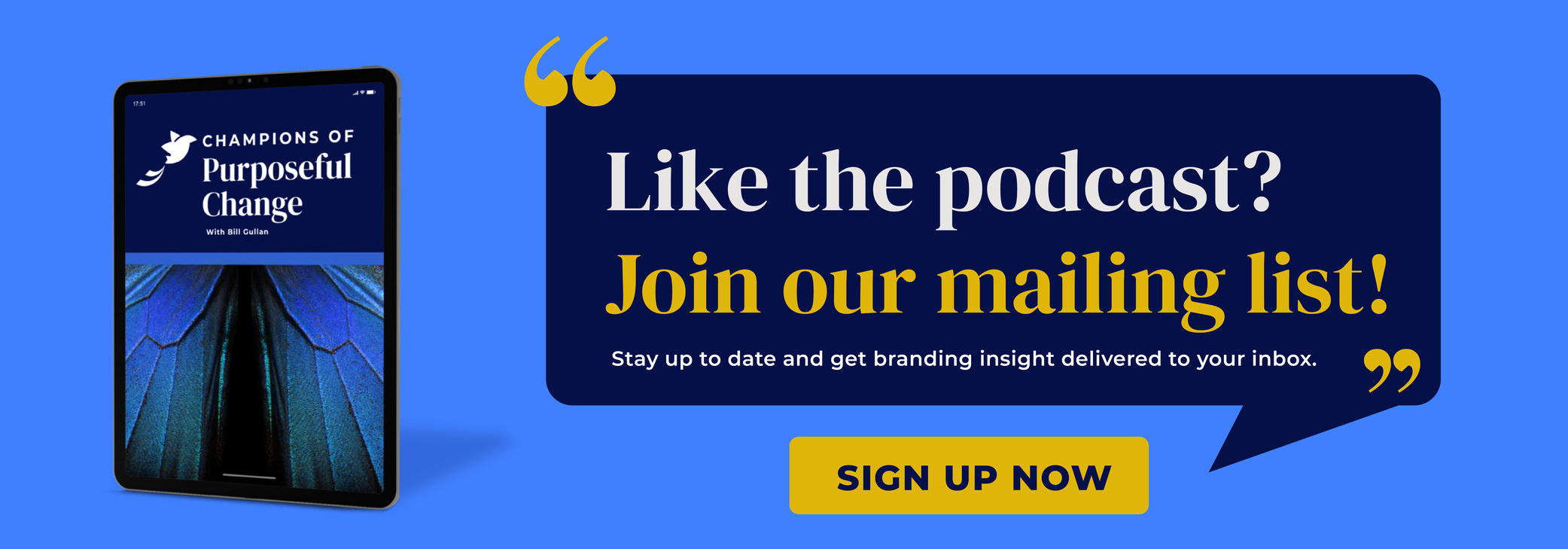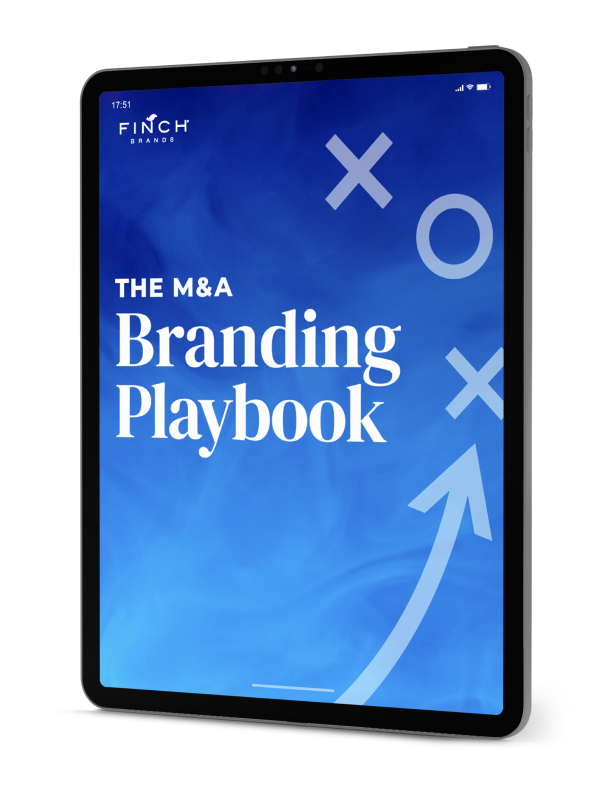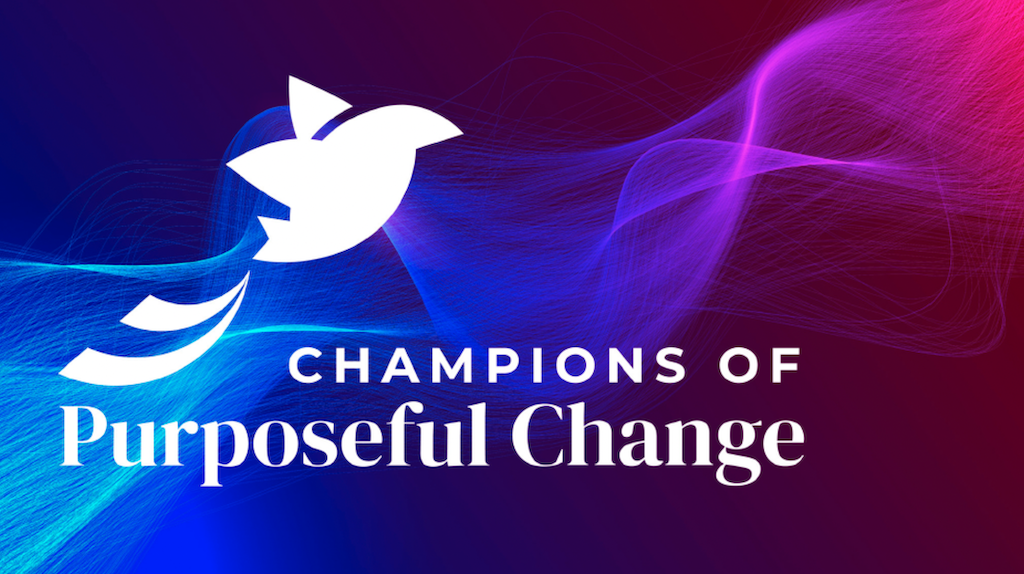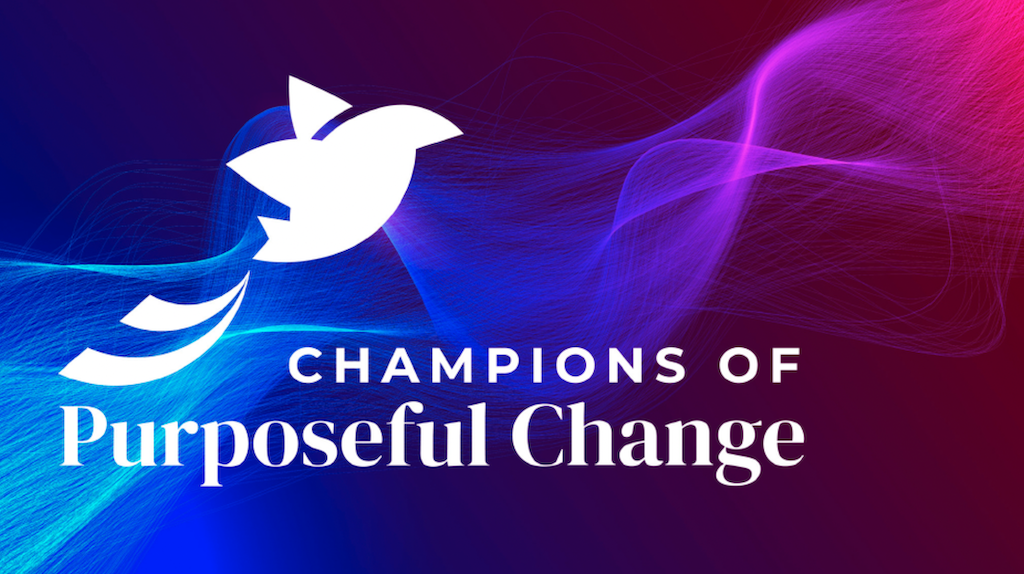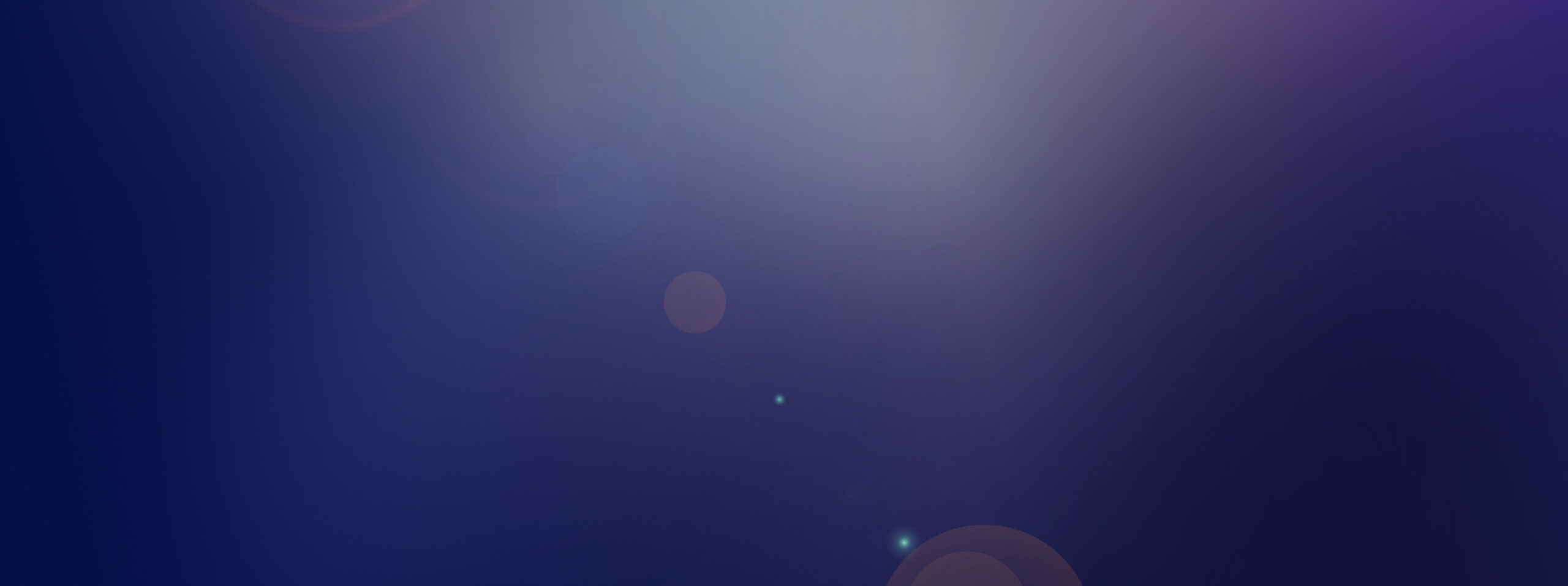#DavidsonTrue – Mark Johnson, Chief Communications & Marketing Officer – Davidson College
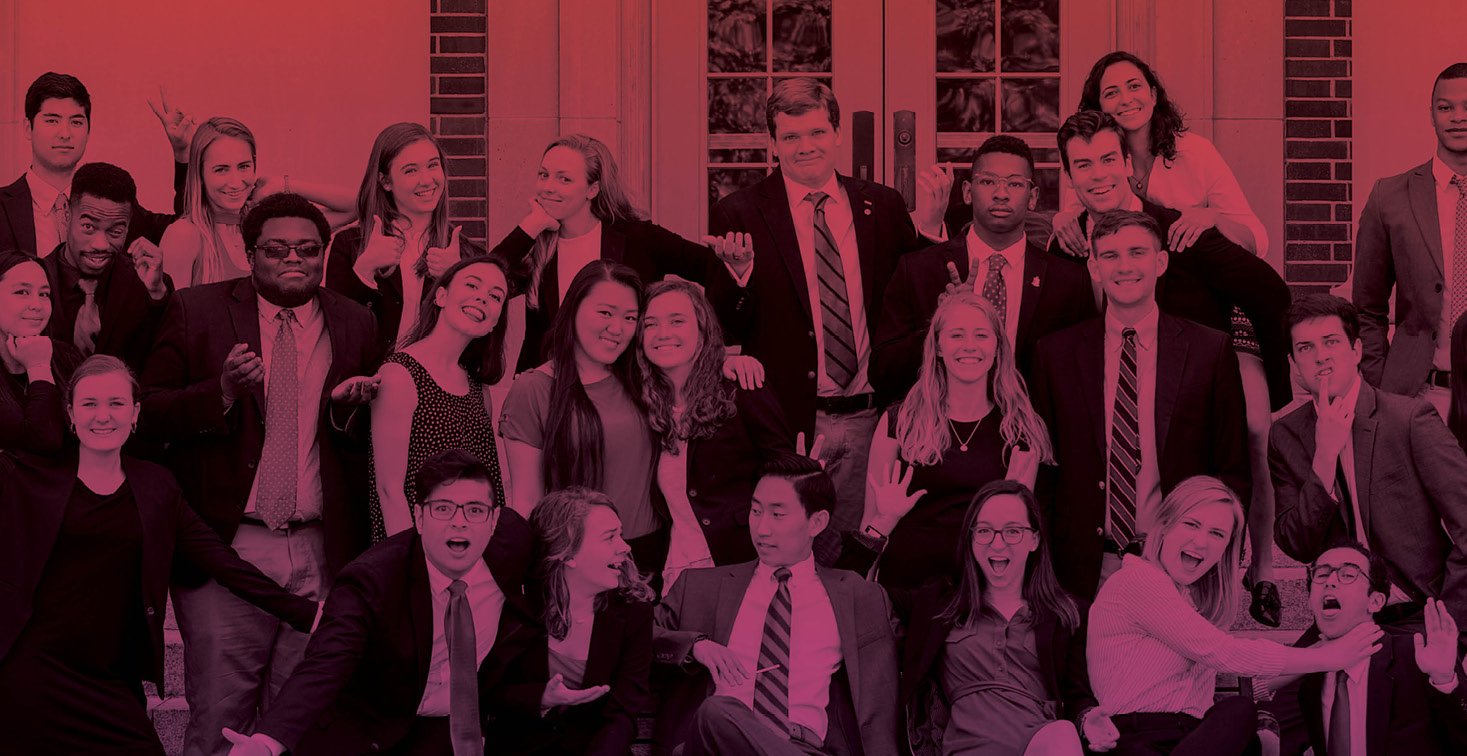
Mark Johnson is Chief Communications and Marketing Officer at Davidson College, a highly selective liberal arts college in Davidson, North Carolina. Mark takes us through his fascinating and diverse career — from journalism to government to cultural institutions to higher ed — and tells the story of the new #DavidsonTrue campaign. If you like our podcast please leave us a rating and subscribe!
Podcast: Download Subscribe: iTunes | RSS
Transcription:
Bill Gullan: Greetings one and all. This is Real-World Branding. I’m Bill Gullan, president of Finch Brands, a premier boutique brand consultancy. Thank you for joining us today. Today’s episode, close to my heart, we have Mark Johnson who’s the chief communications and marketing officer at Davidson College with us. Steph Curry and I are among the alum, similar level of visibility and achievement. Just kidding. But I’m a proud Davidson College alum. And we had an opportunity to collaborate with Mark over the past sort of year and a half to help him achieve his vision of sort of increased differentiation and sort of creative power within the way Davidson expresses itself. And Mark’s a really interesting guy who’s started on the journalism side, and over time evolved into being an outstanding communications leader within higher ed as well some of the other roles I’ll tell you about the way. So enjoy hearing from Mark Johnson.
Bill: Joining us from the beautiful campus of Davidson College 28036 is Mark Johnson, chief communications and marketing officer at Davidson. Thank you sir for joining us.
Mark Johnson: Well, Bill. Thanks for the invitation.
Bill: Of course. It’s our pleasure. And let’s start a little bit with your background. Interesting path from the sort of journalism side to what we might, humorously I hope, call the dark side of sort of the client world. Could you talk a little bit about from sort of your undergrad through to today, the twists and turns in that journey?
Mark: Sure. I mean, one of the points I always make is that I grew up on Central Avenue in Middletown, Ohio. So if I don’t understand the attitudes of the average American, no one does.
Bill: Right. You’re a bellwether, you yourself.
Mark: Exactly. I was in journalism for a a good bit. I worked in Richmond, Virginia, in Washington DC, and in North Carolina for Southern Newspapers, mostly politics and government coverage, but some other kind of fun things. And also I did have one episode in which I misunderstood my boss. He asked if I wanted to go somewhere warm where there’s sand, and I ended up in Iraq with the 82nd Airborne. But that was probably just a miscue.
Bill: Yeah. Not Cozumel. Right?
Mark: Yes. Some assignments in Haiti and Cuba and things like that. But just a great, great fun career. Journalism is, you’re exploring, you’re involved in the issues of the day in understanding people, and overall telling stories. And it was great fun. And then as the Jimmy Buffet lyric says, “Occupational hazard being my occupation is just not around.”
Bill: No doubt.
Mark: Newspapers started to crater, and I looked around and I got the opportunity on the communications side to kind of to continue telling stories, basically. I worked for a woman who was then the governor of North Carolina, and that sort of set me on a communications path, working for also a fantastic museum and science research center.
Mark: And then I had wanted to get into higher ed, and did, first at Arizona State University. Just an exciting and fun place. It does get up to about 120 degrees in the summertime. That was a little different. And then opportunity to come back to North Carolina at Davidson was just fantastic. As you know from going here, Bill, just a top flight school, wonderful people. Just amazing sense of community, and just loved it here.
Bill: No doubt. So Jimmy Buffet also said, “We are the people our parents warned us about.” When you go from the sort of journalism high integrity side, not that the sort of communications side isn’t, but pretty clear rules, sometimes followed, I guess for how journalists cover stories and attribute sources and other things, and whatnot. How has that experience served you well for the roles from the governor’s office through to higher ed that you occupy now? Does an appreciation for how a journalist sees the world, how much of those lessons sort of do you apply in your work currently?
Mark: Every day. I would say the two greatest benefits of having spent that time in journalism is, one, that you’re always going into a challenge with an eye toward all the sides of it, all the aspects of it, rather than just trying to push something straight ahead. So that’s great. actually , three things. Second would be just the storytelling aspect of it. I’m always looking for the pieces. How do we put the story together?
Mark: And lastly, in journalism, not just to succeed, but to survive, you have to build relationships. I mean, you’re basically getting people to do something that by all rational accounts they shouldn’t do, which is to give you information that not necessarily should be out there. By that experience, on the communication side, is invaluable because usually, in any organization, the communications role, you’ve got tremendous responsibility and no authority. So anything that you get done is just by the collaboration and the connections you’re able to build with colleagues.
Bill: And so you, after the governor’s office, you ran external affairs for the North Carolina Museum of Natural Sciences, which apparently was undergoing a pretty significant expansion at the time. You then, a little sort of stint consulting. Landed at Arizona State in Tempe, very warm, large institution, grad and undergrad. Big time, at least they wish, college sports.
Bill: And then back to Davidson. Obviously, North Carolina was familiar and had I think become home over many years. So you go from Arizona State to this 2,000 person, all undergraduate, liberal arts, sort of teaching oriented college. What did you sort of find when you arrived on campus in terms of how sophisticated the college was. I mean you also sort of have come online during a time of transition. I think President Quillen was still early in her tenure. I mean there’s a lot. The college was moving into the Atlantic 10 athletically. So a lot going on.
Bill: But talk about sort of that process of discovery for Davidson. And then we’ll get into what you’ve done, and we’ll sort of focus most recently on the campaign that’s currently launching. But what’d you find when when you arrived on main street and there you are?
Mark: Yes. Well the neat thing was actually the parallels in that so I was coming from literally the largest university in the country. Going to one of a, thankfully, elite group of very small liberal arts colleges. So just dramatic change in scale, dramatic change in mission. Where Arizona State, you’ve got a big research enterprise. It’s very much focused on overwhelmingly mission of access. To Davidson undergraduate, mission, certainly access is a huge part of the mission here, but focused on lives of leadership and service.
Mark: So big striking difference. But the interesting thing was when I got to Arizona State we built up the strategic communications and media relations operation there that my distinguished colleague who brought me in there, we pretty well started from scratch. Because there hadn’t been much of an office there and just built up a great operation. And the president was hugely behind it.
Mark: And then when I came here, very similar in that both institutions were looking for how do we raise profile, how do we tell our story better? And I was very fortunate here, just an amazing team of people. But just because of kind of the history of things, and kind of the, let’s say, the humility of the school. If Davidson has struggles with anything it is with that. Maybe it’s the Presbyterian heritage, or what have you, but they don’t like to brag, don’t like to talk about themselves.
Mark: And so coming in, one of the things we did was we sort of turned the communications and marketing shop focus from projecting out to what I’ll call the family, to campus, parents, alumni like you, donors, those folks, to projecting out to anyone and everyone. Our mission was, we want the stories that we tell, the messages that we put out to be of interest to anyone regardless of how much they know about the college.
Mark: And that was great fun to do, building up in the same way and similar ways to Arizona State. And we made a lot of of gains in that area. And then we turned a little more towards the marketing side of the house, which is still storytelling. Just as you know, different approaches. And thanks to the help you and your colleagues, we got things on a just a great start. It was great fun to dig into the research, which I mean I’ve seen at other organizations that’s sort of that first step of let’s figure out what’s distinctive about this institution. I mean when I was interviewing here, one of the things I said was, I don’t know the answer to that question, but I can find out.
Mark: And what was great fun, like I said, you see this in lots of organizations, internally, the folks have got their preconceptions about I know what’s distinctive about us. I know what will really stand out when prospective students are looking at us. And while all those things like, oh, that we’re one of the very few small schools near a big city. We play Division I sports, we have these small classes, and professors who are very attentive. Those are all incredibly important things to prospective students.
Mark: But depending on which one you’re talking about, other schools kind of had those things too. And it was just great, both fascinating and fun to watch as the research surveys, the focus groups. that really led us to the fact that it was not the programmatic side of the institution, it was not talking about the college as an institution, but it was the people. The people is what popped, the relationships here.
Bill: Right. And so let’s get into that a little bit. First of all, you came in, you sort of rechartered and in some ways restructured the communications capability again from sort of speaking in a humble, quiet voice to the family, with a goal toward a much broader sort of a set of relationships and awarenesses. Davidson, in and of itself, is sort of in this midst of the transition from being a humble, best-kept kind of Southern secret to truly being a boldface name in the pantheon of the best liberal arts colleges in the nation. Steph Curry helps in a variety of ways, at least in terms of general awareness. But what led you to conclude that now was the right time for the college to embark upon this sort of process of research and messaging and brand development?
Mark: It was essential just in terms of the marketplace, in terms of the timeline of what was happening around us. So a key factor here is, so a lot of listeners have probably read, is that we’re heading into something of a baby bust. In that the population of the college going age group is hitting a trough. And so those numbers are going to decline. And so the competition among colleges and universities for those students is going to get more intense.
Bill: That’s for everybody, right? Yeah.
Mark: Yeah, exactly. And so I mean there are headlines now, I mean there are schools that have closed. There are schools that are having financial trouble. I went to a very good small liberal arts college in the Midwest that has had to lay off staff and buy out faculty, and did not get a full freshmen class this year. And they are not alone in this category. So great marketplace pressures coming in.
Mark: And fortunately we were already well on the path. And then there were essentially some, we’ll call them regulatory changes, where I won’t bore folks with the details, but essentially it was some pressure from the federal government in terms of how all colleges and universities handle college admission. And the change that they essentially put into place means that when a student excepts admission, they’re not as locked in as they used to be. And so the need to hang on to them to essentially continue the communications relationship at a higher level than we used to has suddenly appeared. And like I say fortunately, thanks to your guys’ help, we already were a ways along that road. And it’s a matter of just adjusting and elevating some of the things we were doing.
Bill: Yeah, absolutely. And so you introduced some of the big ideas that were underlying this. And I think one of the things that made such an impression on me, to your point, through the research process was the degree to which Davidson was speaking on a, what we might call, a species level. Some of the attributes that the college was highlighting sort of belonged more in the taxonomy, the species, of liberal arts schools. To your point, small classes, in some cases an honor code, in some cases, that sort of blend of academic rigor and other sort of attributes. And I think what your focus and your push was was let’s focus and uncover that distinctiveness. You talk about people. So when it comes to the kind of pillars of the message that you’re seeking to advance here, talk a little bit about what about people and what about community we really want to kind of exemplify through this?
Mark: Right. Anytime you’ve got a school of 2,000 students, it’s easier to have a sense of community. So any small school, you’ve got some degree of that already. But what we found with Davidson, both in talking to students who are already here, and to prospective students was that the kinds of relationships that they formed with other students, with faculty, with staff, we’re just a clear step greater then they were observing other places. And in which you’ve got professors who they are both pushing you and compelling you to explore, to challenge yourself, but with great compassion at the same time. They have a great interest in and they’re supportive of you. You have classmates who are in the same way.
Mark: So quick anecdote, a admission group was touring campus and they were in the library. And there were students at a couple tables, and the student by herself is working out something on a whiteboard there in the library. And she’s clearly just really digging in. Sort of finishes, erases the white board, goes off to do something, or stuff’s still on the desk. A student from the other table walks over and writes on the whiteboard, “You’re doing great, sweetie,” and sits back down. So the other student, she returns, she sees that, she smiles, no idea who did it. And that kind of thing goes on all the time.
Mark: And fortunately, we’ve got a diversity of students here. Same experiences, different experiences, different language, different religion. And so they’re learning from these people who are also at the same time so supportive of them. And so I just think all those things we found, like I said, it was a measure above. And it ties into a study that Purdue University did with the Gallup folks a little while back. It was great lives, great jobs was kind of the overarching theme of it. And they were talking to folks in their 30s, 40s, and 50s, years after they’ve been to college.
Mark: And they would find folks, and if they said, “I am happy with my life, I’m happy with my job,” they would dig in and say, “What were the key factors that led you to that point?” And they would always come back to college and talk about kind of three main things. I had a professor who shared my hopes and dreams. I had a major project that lasted a semester or longer, and I had some kind of internship or externship experience that helped me connect things in college to out in the real world.
Mark: And those are all things that Davidson does an amazing job of. And so I think, especially that kind of first category, tied into what we were finding in the research. And what was interesting, sadly, kind of in the Gallup survey, the bar for how did you know a professor shared your hopes and dreams, and the measure was, the professor knew my name. And that’s a pretty low bar.
Bill: Big school. Yeah. Right. Right. Sure.
Mark: And at Davidson, I mean, I know of a professor who used his airline miles to help a student go home in a family emergency a couple of weeks ago.
Bill: Wow. Powerful.
Mark: I mean, it’s amazing support and relationships here.
Bill: Yeah. And I remember one thing that was unmistakable through the research as well is that, to your point, despite the diversity of background and perspective and interest that Davidson absolutely delivers, there does seem to be this common set of attributes. We use the words smart, driven, and kind. And so the relationships that are formed between smart, driven, and kind people where integrity is assumed. That’s a pretty powerful thing. And it sounds like, based on the Purdue research, not just for that four year experience, but taking one further into life.
Mark: Exactly. Yeah. And we talk about the smart, driven, and kind qualities. And interesting, some folks will kind of dig in a little bit, and they tend to focus on kind. And you can hear when they’re asking about it, the echoes of the environment that we’re in right now. Just sort of the state of the nation really, just sort of the tension, what we see on TV, what we hear, what people take as role modeling. And kind just really is resonating with folks right now.
Bill: Right, right. No, that’s powerful. And there’s so many individual stories of that that come through the college’s publications and as well as just word of mouth on non-campus. So the research and the underlying sort of distinctively Davidson brand message here was about a uniquely supportive community comprised of folks with these sort of attributes and outlooks. You then managed and led a process to translate that into communications across the range of stakeholder types. You’re right, the admissions channel obviously is important to this as well as a whole bunch of other folks. Talk a little bit about, if you would, the transition from this sort of brand platform into what is really now launching as the Davidson True campaign. How did that translation happen? What were you seeking to sort of deliver, and some of the key ideas that are underlying that external marketing approach?
Mark: I would say, obviously, the overall driving point was how do we convey that sense of community. And again, with your all’s help, we were able to assemble just terrific tools for this. We had the good fortune that we were rebuilding the website at the same time. So we were able to kind of tie that in. And if you look at our website, there’s a cool video at the top. And as you scroll down, one of the first big things that you come to is a collage of stories about Davidson community. And the whole idea was we want a place to showcase these stories. And I’m constantly telling folks, show, don’t tell. And that’s what these stories do. They don’t use the words smart, driven, and kind. They’re just great stories that, because they’re out of here, they convey those things.
Mark: And similarly with the admission materials, trying to tell stories, I often talk about the difference between what I’m doing now and journalism. In journalism, I’m telling a story, I’m going to go to great pains to go find the critic and the naysayer. Very fortunately, in this position, I don’t have to do that. But that’s really kind of the only element that’s different. You’re still assembling facts. You’re still trying to convey an important point to folks.
Mark: The other big aspect of what we were doing was my colleagues in admission, who are both fantastic and fantastically successful, thankfully, the point that those that are on the road would make is I go to these college fairs, and there’s this table with all of the viewbooks, as we call them, from the different colleges, and they all look the same. They all have a gorgeous photo on the front of a lush green lawn and a stately building. Students playing Frisbee, lying in a hammock, or what have you.
Mark: And from that, I took that, and it was like we want to stand out. But we already got a distinct message to convey. Let’s have a distinct way of doing that. And so the materials that have come out of that, some of it is black and white photo with the color gradient coming across. Some of it is the whole photo is one color with gradients in there. But every piece, what it conveys are relationships between and among students, with faculty, with staff, with the community, with alumni, what have you. And instead of it’s just like you see, it’s just like the research discovery, instead of focusing on things about the institution, focus on the people. And the most recent, obviously, example of that is the television commercial, which will debut on the first A10 conference game against Duquesne.
Bill: Yeah, absolutely. And so the sort of moniker for the campaign is #Davidsontrue. First of all, what does that sort of mean to you? And then secondly, why a hashtag? Is that just the sign of the times? Or talk a little bit about the sort of campaign overall theme.
Mark: Davidson True. It ties into to who we are. It ties into that sense of community. It’s these true to our soul qualities that come through in the people, in the students and faculty. The integrity. The idea that one of the great pieces of material we put out says leadership is not about a title. And the photo in that is one of our students leading a class of kids at a community center. And to me, I mean, it’s just such a great encapsulation of what we’re talking about.
Mark: One of the pieces is about scholar athlete, and we mean it. And Davidson does play Division I, which is rare for a school of this size. And we compete hard. And the great thing about that is we do athletics right in that there’s not a special athlete’s dorm and place where they eat, and all those sorts of things. The athletes on the field, they’re your classmate, they’re your hall mates, they’re the person you’re working on a project with. And so you’re supporting them. You’re used to interacting with them. The only difference with them is they’re playing a sport and maybe you’re not.
Mark: And we view athletics as part of education. You learn from athletics when you fail, how you reframe and try again. You learn leadership and you learned that teamwork triumphs over individual talent. Just all of these just your great qualities that tie back in. And it’s a small thing, but I like the fact that it’s Davidson True. It’s not truth, which is very specific and definitive. We’re not saying that at all.
Mark: One of the pieces that we have says real truth is more about questions than answers. It’s about exploring, and this community that gives you the support to develop the courage to explore, and the courage to challenge norms and policies and ideas that you question. And you’re right that a hashtag just is a great channel by which we can spread that message. It’s so widely used. I mean, obviously we use it on specific social media channels, but we talk that way a little bit at the at times. And it is a really helpful way for folks to remember and connect into those core values.
Bill: Cool. Really cool. And again, so honored to play even a meager role in this by your side. And for those who, it’s our belief, no real great way to track this, but our belief is that many of our listeners are thinking about their own sort of career development. Given the journey you’ve taken, Mark, are there any kind of words of wisdom that were useful to you along your career path that you’d want to share with some folks who were thinking about the pathways that they want to take in their own lives and careers?
Mark: I think that there’s an actor I heard one time quoted his father telling him that risk is the price of opportunity. And I think there’s a lot to that. I would translate that into explore. I was very fortunate to be in a business in journalism in which the opportunity to explore was everywhere. You could change beats, you got to pursue different stories all the time. And in a way I’m still doing some of that, but I think you can take it broader than, that when you’re in college and when you’re starting out, essentially, there are things that interests you, try it. Check it out, and see where it might take you.
Mark: I’m working on a story right now about an alum who’s a high ranking official in the Justice Department, and then prosecuted some really high profile cases. When she was at Davidson, she came here studying premed. She spent two years figuring, oh, my dad was a doctor. This is kind of interesting. I’ll head that way. And she had been painfully shy in high school, and gets here, this supportive community. She connects, kind of builds up some confidence.
Mark: Her junior year, she goes abroad to India for a semester. She’d never really been out of the country before, and not to a kind of an easy transition to Western Europe. Goes to India, and it was just transformative, and you really felt like she could do anything. And also kind of, I’m interested in culture and history and language and things like that.
Mark: Long story long, completely switches to the humanities. Starts studying history. Out of Davidson, works in the tech world for a little while just because it seems interesting. But anyway, ends up eventually going to law school. And it’s just we’re constantly deviating path because she’s trying things. And has just been fabulously successful in the legal world. And I just think there’s tons of stories like that. When there’s an opportunity to just to check something out and see if it’s a fit, find out what drives you. I think that’s where it lands.
Bill: She’s a great antidote to what we hear sometimes as the knock on liberal arts education. And of course as someone who’s a product of that, I try to champion that every chance I get. And some of the pushback occasionally is that, yeah, you learn a lot about a bunch of different stuff, but maybe it doesn’t help with sense of direction. And there are so many stories of classmates of mine and others, from Davidson and beyond, who have taken a similarly interesting and circuitous path to a place of great meaning and power. And it’s certainly something good to remember.
Bill: Mark, we really appreciate your time and your friendship. Mark’s the chief communications and marketing officer at Davidson College. Thanks for joining us.
Mark: Thank you.
Bill: Thank you to Mark, both for his time and insight today, as well as the opportunity to support his leadership and his efforts at Davidson, a place that’s very special to me and I know to many others who’ve come through. And we’re just excited to be able to tell a bit of that story, or help tell that story.
Bill: Three ways to support us. That’s our story here at Real-World Branding. Let’s do it. Rate and review if we deserve it. Five stars would be lovely. Although our skin is thick, we love to learn and hear that feedback. Reviews and ratings help us become more visible in the algorithm, however the heck that works, to make sure that those who are interested in this kind of content can find it easily within the podcaster of their choice.
Bill: Subscribe, click the button. You’ll never miss one of these. Our timing is more or less every other week, although the day that it launches, or whatever, that can be variable. So if you click subscribe, you won’t have to worry. You won’t have to wonder. You won’t have to check. It’ll flop right in there to the podcast app of your choice.
Bill: And then let’s keep the dialogue going on Twitter @billgullan, @finchbrands. Let us know your thoughts. Future topics, future guests, reflections on what we are or are not doing to your satisfaction. We really do enjoy, first of all, it feels good to know that there’s people out there. And secondly, we really want this not only to be fun for us, which it is, but to be valuable for those who spent some time with us every other week. So please let us know how we can make that evermore true for you. And we will sign off on the Cradle of Liberty.
